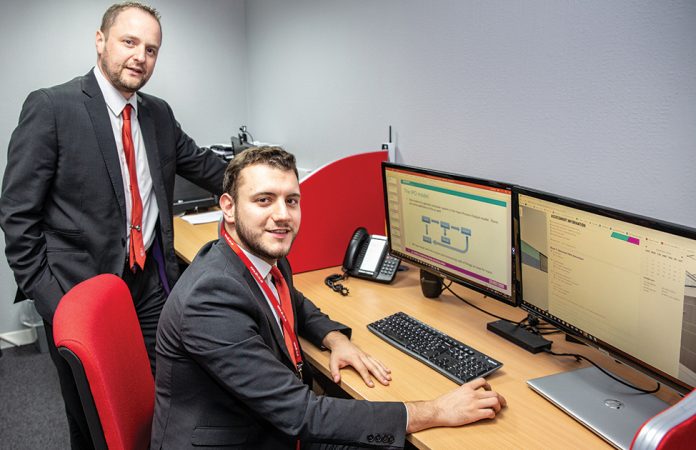Robert Gordon University (RGU) has a long-standing reputation for its extremely close links with business and industry. This close collaboration allows the university to develop a demand-led curriculum which is tailored to the needs of employers
RGU continues to implement innovation in industry-focused teaching and professional development, and is proud to continue to lead the way in work-based learning, taking the university to the workplace with its Graduate Apprenticeship (GA) offering.
GAs have been developed by Skills Development Scotland in partnership with employers and industry and the further and higher education sectors. GAs are a new way for individuals to get qualified up to Master’s degree level while in paid employment. They are designed by employers and offered in key sectors that need highly skilled employees.
Drawing on its expertise of working with employers, RGU was one of the first universities in Scotland to deliver GAs and continues to be at the forefront of work-based learning having expanded its offering across a range of disciplines in construction, engineering, business management, IT and accounting.
The university has already delivered successful GAs in partnership with more than 150 businesses in a range of sectors, covering the length and breadth of Scotland and recently announced a new round of degree level GAs, with 175 fully-funded places being offered for 2020.
Professor John Harper, Principal of Robert Gordon University (RGU), commented: “Graduate Apprenticeships represent a major step-change in learning, and were introduced to address future skills shortages in key areas. As we move into the fourth year of offering GA opportunities, it is clear these provide a solution to many business needs, equipping workforces across Scotland with the expertise and skills to navigate changing working landscapes.”
The university’s innovative model reflects the importance of RGU’s approach in engaging employers to design the degrees based on the value of the workplace as a learning environment. The majority of the learning is done in the workplace, minimising time away from the organisation and making it accessible no matter of location. The graduate apprentices benefit from a new type of learning, putting what they have learned into practice immediately with support from both their employer and the university. The employers also benefit in a number of ways, from being able to plan for their skills needs in a new way and develop existing staff with emerging and transferable skill sets, to improving employee retention by supporting and investing in their development.
Professor Harper continues: “Partnering with companies across Scotland has allowed us to co-develop and support this new model of learning. A blended learning approach, supported by our virtual learning environment, with online lectures, discussion forums and access to course materials, is used. This is complimented by a number of on-campus sessions at the university’s Garthdee campus, where students can exchange ideas and experiences with their peer group and tutors.
“As a transformational work-based learning initiative, GAs fit with RGU’s strengths and ethos, showcasing our ongoing commitment to develop the workforces across Scotland with the essential expertise, tools and innovative skills to navigate changing working landscapes and fulfil the needs of industry.”
RGU provides GAs in Accounting, Business Management, Construction and the Built Environment, Data Science, Engineering: Design and Manufacture, Engineering: Instrumentation, Measurement and Control, and IT: Management for Business.
To find out more about how RGU can partner with your organisation to shape the workforce in line with business demands, please contact gaemployer@rgu.ac.uk or visit www.rgu.ac.uk/ga.







